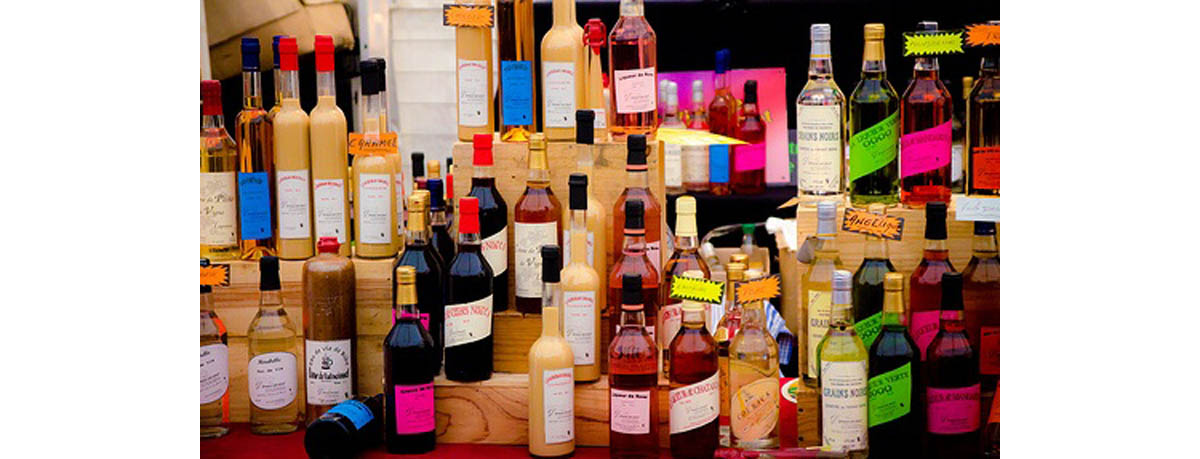Table of Contents
Even the most erudite imbibers of alcoholic beverages often cling to outdated ideas about the best ways to enjoy a drink. Here five of the most common misconceptions about alcoholic beverages with their corrections, followed by five of the most common misconceptions about hangovers and how to get over them.

1. Older scotch is better scotch.
Although all scotch whiskeys need to mature at least three years in oak barrels to be drinkable, the age of a wine or a bottle of scotch is only a matter of how long ago it was bottled. The maturity of scotch whiskey is what gives it taste.
Some whiskeys become sweet and spicy, absorbing tannins from the wood in which they are stored, after just three to four years, while other whiskeys may have to reach "drinking age" (about 20 years) to achieve their full, smooth flavor. After 30 or more years, however, the oak tannins begin to disintegrate and the whiskey begins to taste bad again. Older is not necessarily better, in other words. Drink that thing before it reaches its expiration date.
2. Sugar is insipid.
Many drinkers insist that sweet drinks are silly. Even the names of popular sweet drinks suggest underage drinkers imbibing at the side of the pool.
Names like Bahama Mama, Big Red Hooter, Leg Spreader, Naked Pretzel, and Sex on the Beach suggest that something more than mere intoxication is offered by the combination of sugar and alcohol.
However, just because a drink is sweet does not mean it cannot be sophisticated.
When spirits, herbal essences, citrus, and botanical flavors all occupy the same glass, sweetness can only enhance the experience. In fact, the combination of sweet flavors brings out one note after another, with various kinds of sugars activating sweetness receptors on the tongue in sequence rather than all at the same time. That's not to say that Bacardi Breezzers are the epitiome of culture, but don't shun sugar just because.
3. Water ruins a good drink.
Adding water to drinks was once derided as a way to cheat customers out of the alcohol they paid for. In today's world, on the other hand, it is known that a small amount of water "opens up" liquor so that previously hidden aromas are released. A scotch and water, for instance, is not all about saving money on the scotch. Ordering a drink "neat," without water, results in a different drinking experience, more sting on the tongue, less aromatic flavor. Of course, "on the rocks" will also result in extra water content once the ice melts.
4. The worm in the tequila bottle contains concentrated hallucinogens.
The worm that is present in mezcal, a Mexican beverage closely related to tequila, is actually the larva of a butterfly that grows on the agave plant from which both beverages are made. Bottlers of mezcal began adding the worm in the 1950's, when tequila sales rocketed but mezcal sales sank. Eating the worm became a macho ritual that bolstered sales of the drink. There are not, however, any traces of the hallucinogen mescaline in the worm in mezcal. You won't really gain anything but alcohol from this one.
5. And Jägermeister doesn't contain deer blood, either.
There are many other common misconceptions about alcoholic beverages. Consider these:
- Although the word Jägermeister means "master hunter," there is not really any deer blood in the beverage. Don't believe the myths.
- All alcoholic beverages actually do have calories, although "lite" beer has fewer, either because it is watered down or because the brewer skips adding an enzyme that releases more sugars from the mash. Low-carb alcoholic drinks contain less sugar.
- And while absinthe drunk in excess can cause hallucinations like those written about by American poet Edgar Allen Poe (whose poem about absinthe was once taught to every American school child), the mental distortions are due to alcohol, not the herb.
- Mallett KA, Lee CM, Neighbors C, Larimer ME, Turrisi R. TM, Alley KJ, Slutske WS, Wood PK, Sher KJ, Shiffman S, Heath AC. Low sensitivity to alcohol relations with hangover occurrence. J Stud Alcohol. 2006 Mar. 67(2):269-76
- Mallett KA, Lee CM, Neighbors C, Larimer ME, Turrisi R. Do we learn from our mistakes? An examination of the impact of negative alcohol-related consequences on college students' drinking patterns and perceptions J Stud Alcohol Drugs. 2012 Nov. 73(6):925-32
- Photo courtesy of --christophe-- on Flickr: www.flickr.com/photos/--christophe--/6745233459
- Photo courtesy of lydiashiningbrightly on Flickr: www.flickr.com/photos/lydiashiningbrightly/5353251398


Your thoughts on this